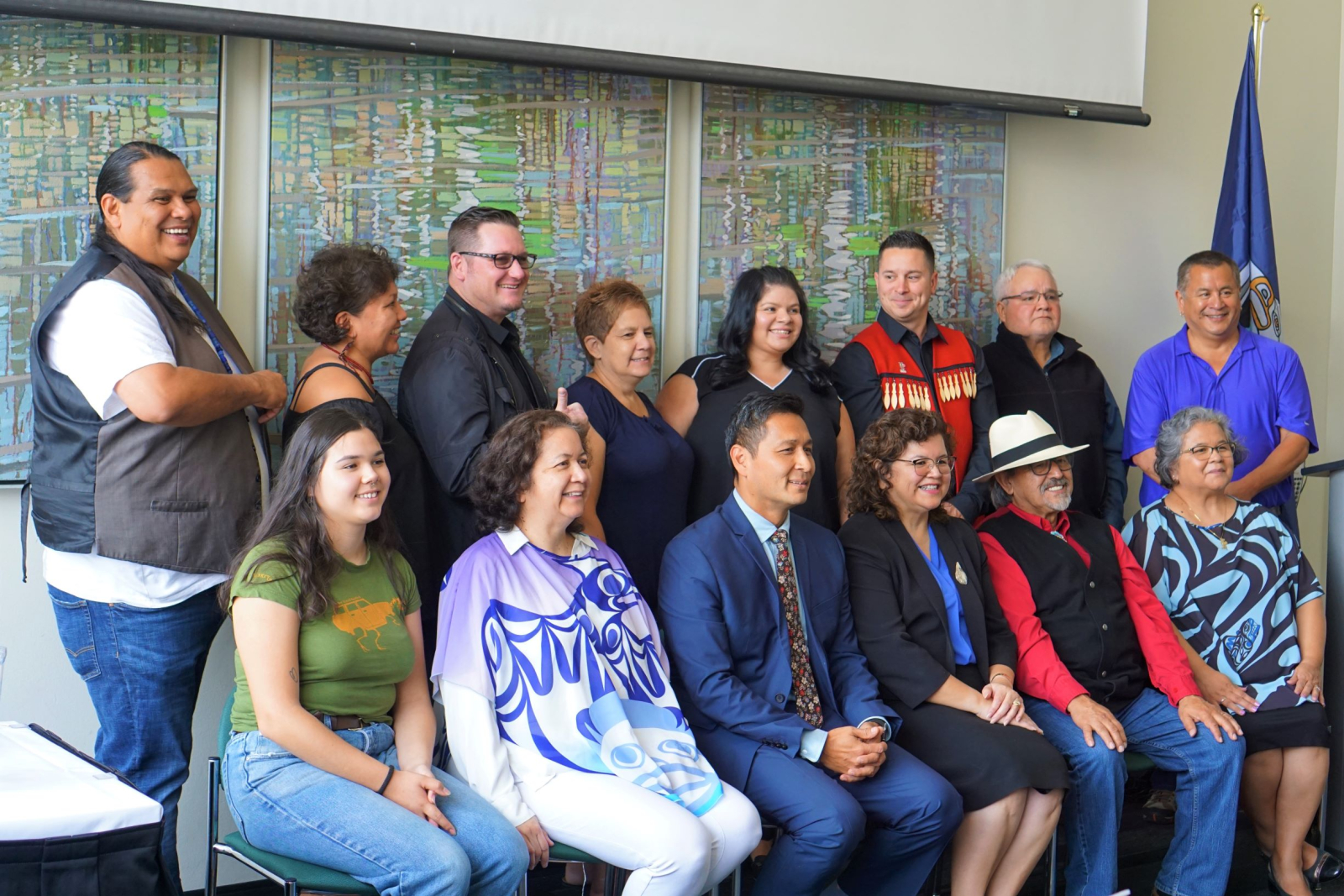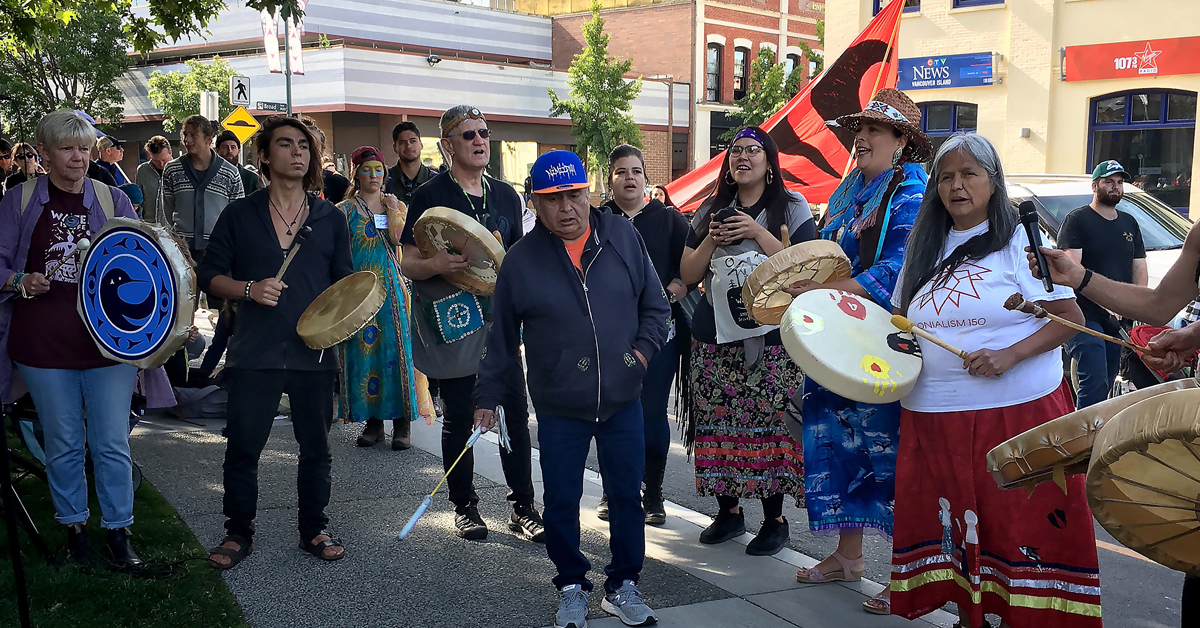Millions invested in TC Energy, the parent company of Coastal GasLink, stand out as a conflict of interest, experts say.

PROTESTERS BLOCK THE INTERSECTION OF BROADWAY AND COMMERCIAL DRIVE IN SUPPORT OF WET’SUWET’EN NATION HEREDITARY CHIEFS ATTEMPTING TO HALT CONSTRUCTION OF A NATURAL GAS PIPELINE ON THEIR TRADITIONAL TERRITORIES, IN VANCOUVER, ON WEDNESDAY, FEBRUARY 19, 2020. THE CANADIAN PRESS/DARRYL DYCK
The board that oversees RCMP pension funds has invested in the owner of the Coastal GasLink pipeline—and experts say it is a conflict of interest in light of the Canada-wide standoffs between police and pipeline opponents.
Montreal-based Public Sector Pension Investment Board is a crown corporation that manages billions of dollars in retirement pension fund investments for the RCMP, the Canadian Forces, the Reserve Force, and the federal public service.
The $12.1 billion RCMP pension account is invested in a range of industries, including 4.5 percent in the global natural resource industry. Each year, PSP Investments receives millions more in transfers from the Canadian government toward pension accounts, with the goal of increasing that amount through investments.
Earlier this month, PSP Investments reported ownership of CAD $106,899,441 worth of shares in TC Energy, also known as TransCanada Corporation—owner of the controversial CGL natural gas pipeline.
PSP Investments has held shares in TC Energy since at least 2015, which has fluctuated in the range of 1 million since that year.
While TC Energy announced last December that it was selling off a 65 percent stake in the Coastal GasLink pipeline to the Alberta Investment Management Corporation (AIMCo) and private equity firm KKR, the company will be contracted to build and operate the pipeline.
Public Sector Pension Investment Board declined to comment on the TC Energy investment.
The Coastal GasLink pipeline is currently at the centre of ongoing protests and blockades across Canada.
Opponents of the pipeline say Coastal GasLink did not obtain proper consent to build through the traditional territory of the Wet’suwet’en Nation. The RCMP has had continuous presence on Wet’suwet’en traditional lands in northern B.C., where the enforcement of a court-ordered injunction to prevent people from blocking construction has resulted in numerous arrests, including 30 people in early February.
Experts in the fossil fuel economy say that the connection between the RCMP and the CGL pipeline is too close for comfort.
“There is a definite conflict of interest,” said James Rowe, associate professor of environmental studies at the University of Victoria. “This pipeline is literally in the material interest of the retirement security of the RCMP.”
Rowe is part of the Corporate Mapping Project, which investigates supporters of Canada’s fossil fuel industry. The project is led by the University of Victoria and two progressive research centres, the Canadian Centre for Policy Alternatives and the Alberta-based Parkland Institute.
Rowe explained that the conflict is not a direct one, because individual RCMP members likely aren’t aware of where their pension is invested.
Rowe said he doubted that these investments would directly affect policing decisions made by the RCMP.
The RCMP referred a request for comment to the Treasury Board of Canada Secretariat, which stated that PSP operated separately from the government.
“Pension investments are managed entirely by the Public Sector Pension Investment Board,” said Martin Potvin, media spokesperson for the Treasury Board in an email statement.
As a crown corporation, he said the PSP Board “operates at arm’s length from the federal government and its business and affairs are managed by an independent Board of Directors.”
December 2019 financial reports indicate that PSP is also invested in a wide variety of natural resource corporations, including Suncor and Kinder Morgan.
It also invests in hundreds of companies in a wide range of industries, including U.S.-based food and retail giants Papa John’s, Starbucks, and Walmart.
Rowe said that pension plan capital is a powerful player on the world market, and many of these funds are invested heavily in oil and gas. It’s not unusual for pension funds, or any investment, to rely on fossil fuel companies—though some organizations, such as the union BCGEU, are looking to divesting.
In 2019, the Corporate Mapping project found that the Canadian Pension Plan Investment Board (CPPIB) had $2.8 billion invested into the Canadian fossil fuel industry—an amount they said made the pension plan an “enabler” of the industry.



